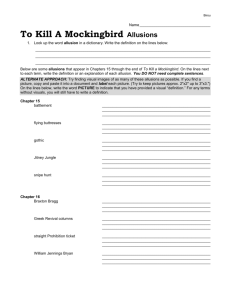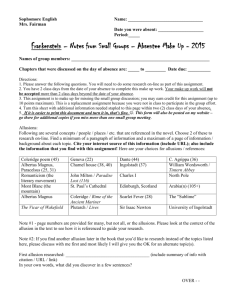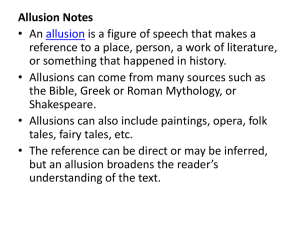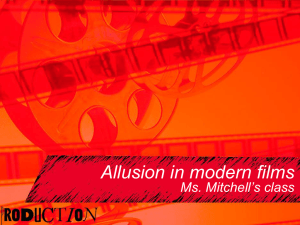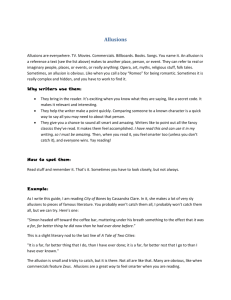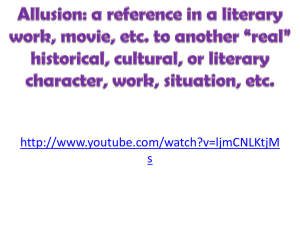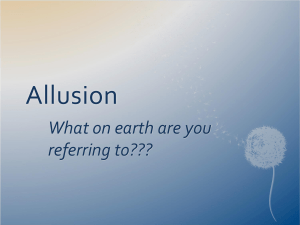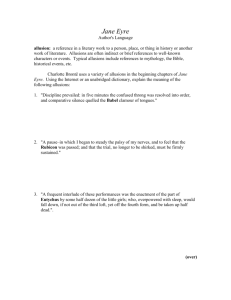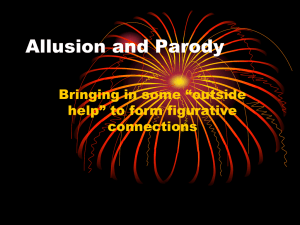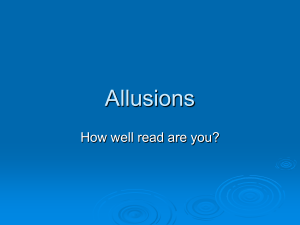Allusions Extra Credit: Jane Eyre An allusion is a figure of speech
advertisement
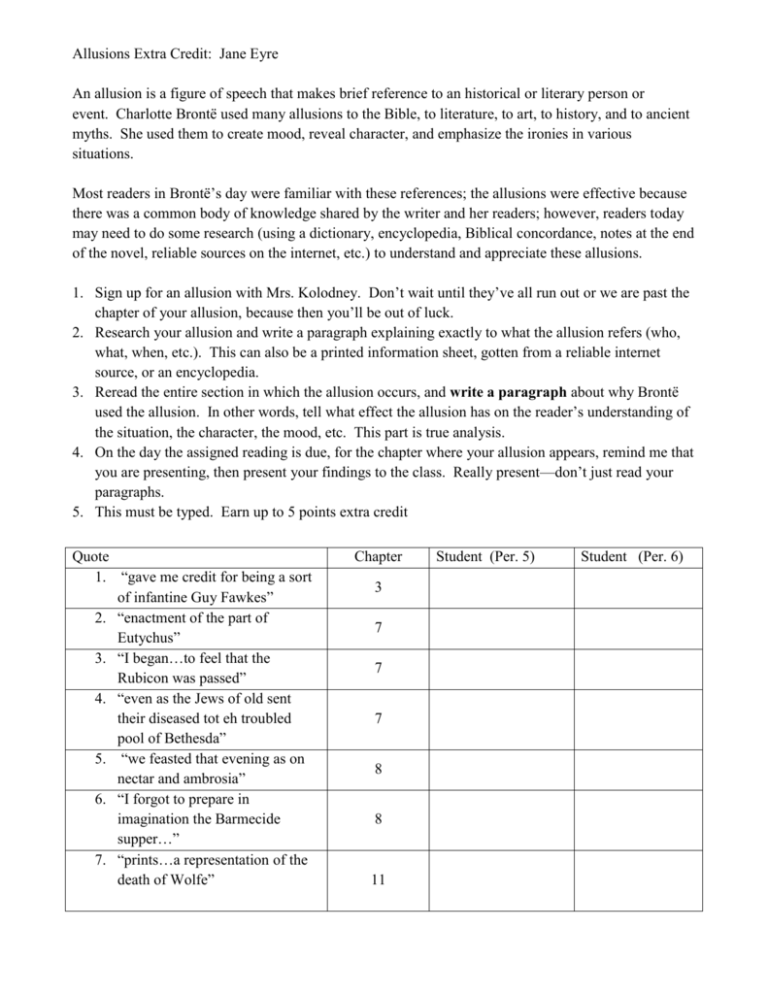
Allusions Extra Credit: Jane Eyre An allusion is a figure of speech that makes brief reference to an historical or literary person or event. Charlotte Brontë used many allusions to the Bible, to literature, to art, to history, and to ancient myths. She used them to create mood, reveal character, and emphasize the ironies in various situations. Most readers in Brontë’s day were familiar with these references; the allusions were effective because there was a common body of knowledge shared by the writer and her readers; however, readers today may need to do some research (using a dictionary, encyclopedia, Biblical concordance, notes at the end of the novel, reliable sources on the internet, etc.) to understand and appreciate these allusions. 1. Sign up for an allusion with Mrs. Kolodney. Don’t wait until they’ve all run out or we are past the chapter of your allusion, because then you’ll be out of luck. 2. Research your allusion and write a paragraph explaining exactly to what the allusion refers (who, what, when, etc.). This can also be a printed information sheet, gotten from a reliable internet source, or an encyclopedia. 3. Reread the entire section in which the allusion occurs, and write a paragraph about why Brontë used the allusion. In other words, tell what effect the allusion has on the reader’s understanding of the situation, the character, the mood, etc. This part is true analysis. 4. On the day the assigned reading is due, for the chapter where your allusion appears, remind me that you are presenting, then present your findings to the class. Really present—don’t just read your paragraphs. 5. This must be typed. Earn up to 5 points extra credit Quote 1. “gave me credit for being a sort of infantine Guy Fawkes” 2. “enactment of the part of Eutychus” 3. “I began…to feel that the Rubicon was passed” 4. “even as the Jews of old sent their diseased tot eh troubled pool of Bethesda” 5. “we feasted that evening as on nectar and ambrosia” 6. “I forgot to prepare in imagination the Barmecide supper…” 7. “prints…a representation of the death of Wolfe” Chapter 3 7 7 7 8 8 11 Student (Per. 5) Student (Per. 6) Allusions Extra Credit: Jane Eyre 8. “chests…looking…like types of the Hebrew ark” 9. “two rows of small black doors all shut, like a corridor in some Bluebeard’s castle” 10. “the mountain will never be brought to Mahomet” 11. “Like heath that, in the wilderness/ The wild wind whirls away” 12. “I pass a law, unalterable as that of the Medes and Persians” 13. “a hag like one of those who appeared to Macbeth on the heath at Forres” 14. “as Job’s leviathan broke the spear, the dart, and the habergeon” 15. “a shore, sweet as the hills of Beulah” 16. “Who would not be the Rizzio of so divine a Mary?” 17. “the fiddler David…black Bothwell…James Hepburn” 18. “I dote on Corsairs” 11 11 12 12 14 15 15 15 17 17 17
